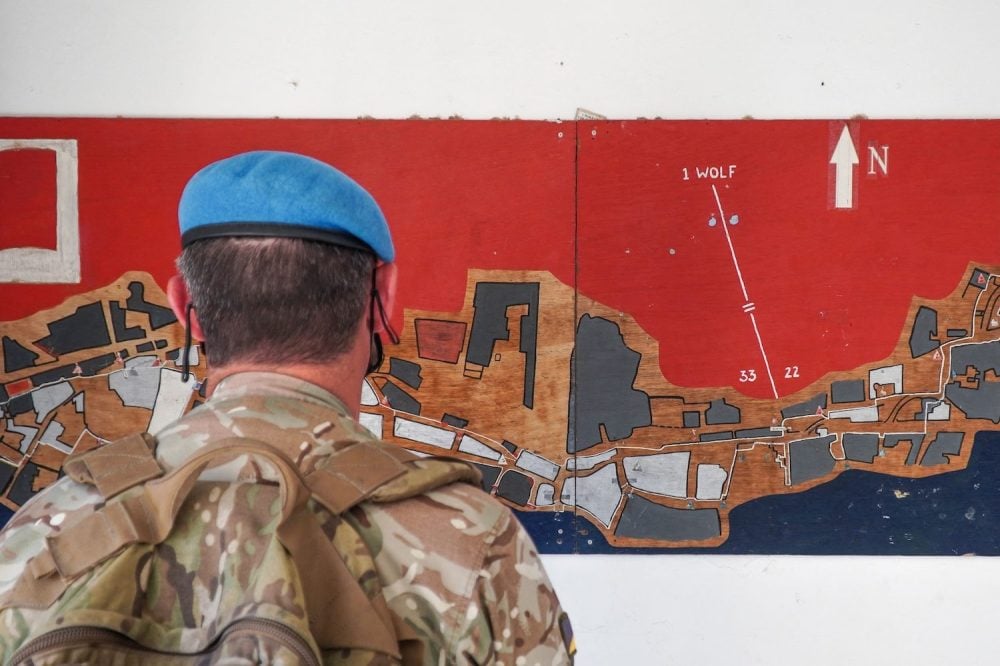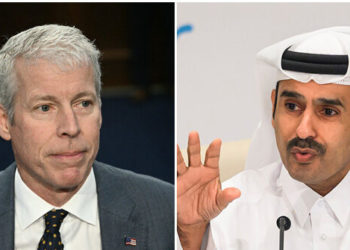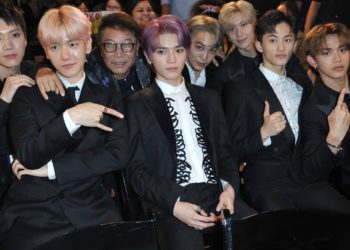On Oct. 19, citizens of the Turkish Republic of Northern Cyprus, the unrecognized state under Turkey’s patronage in the northern third of the island of Cyprus, will be heading to the polls to elect a president. They face a choice between two competing visions for their community: The incumbent, Ersin Tatar, offers deeper alignment with the Turkish government and its undemocratic, combative policies. The challenger, Tufan Erhurman, promises a more balanced relationship with Ankara and a continued push for peace with the internationally recognized, European Union-member Republic of Cyprus (RoC).
Beyond the question of which future Turkish Cypriots want, there’s the bigger question of whether their desires will matter. After putting its finger on the scale in Tatar’s favor during the last presidential election, Ankara may well do so again. And even if Erhurman wins, he will be seriously constrained in his pursuit of peaceful reunification. As a result, the island appears destined to remain divided, while the north is pulled deeper into Ankara’s geopolitical agenda.
As the incumbent, Tatar’s platform is clear. The candidate of the right, Tatar has been promoting Ankara’s vision for a two-state solution in Cyprus based on full recognition for Northern Cyprus.
Given that the United Nations-sanctioned framework for a settlement is still that of a bizonal, bicommunal federation and given that the RoC—and the rest of the world, for that matter— currently has no interest in recognizing Northern Cyprus, Tatar’s policy will ensure that the island remains divided. At best, it is a waiting game until some uncertain point in the future when conditions may be more favorable for the north’s international recognition. At worst, it is an excuse to build ever closer ties with Ankara to the point where Northern Cyprus becomes a Turkish province in all but name.
Meanwhile, Erhurman, the leader of the left-wing Republican Turkish Party, still supports a federal solution to the island’s division. He also wants a healthier relationship with Turkey, one in which Turkish Cypriots would reclaim more agency in domestic and foreign-policy making and maintain their democratic traditions of free speech and an independent judiciary.
Northern Cyprus’s last presidential election, in 2020, was marred by Turkish interference on Tatar’s behalf. The then-incumbent, Mustafa Akinci, had made a number of comments that rubbed Turkish President Recep Tayyip Erdogan and his government the wrong way. As a result, Ankara intervened against him. More ominously, Akinci said he had been threatened by members of Turkish intelligence. Then came allegations of Turkish-sponsored vote buying nearer to election day.
Five years on, Turkey continues to prop up Tatar. On July 20, Erdogan was in Northern Cyprus to celebrate the 51st anniversary of the 1974 Turkish invasion of Cyprus. His arrival was announced on billboards adorned with his face next to Tatar’s. The slogan accompanying the duo was “Crescent and Star: We Are on the Same Path,” a phrase that sounds more playful if not necessarily poetic in the original Turkish. Understandably, many Turkish Cypriots are now wondering how far Turkey will go to determine the outcome of the upcoming election.
Indeed, it is impossible to understand the Turkish Cypriot election without understanding the situation in Turkey—where many citizens are also wondering whether they will ever have free and fair elections again. With the incarceration of Istanbul Mayor Ekrem Imamoglu and the expanding crackdown on the Republican People’s Party, Turkey is becoming an example of what political scientists call hegemonic electoral authoritarianism or what casual observers call Putinesque autocracy.
Now, Erdogan’s domestic and foreign-policy trajectory has ensured that he no longer has any incentive to seek a political solution on Cyprus—and instead has ample motive to block one. For starters, strengthening Turkey’s relationship with the EU is no longer the carrot that it used to be. In any case, the EU does not seem too perturbed by Turkey’s autocratic transformation so long as Ankara keeps immigration in check.
But beyond this, Northern Cyprus has taken on an increasingly prominent role in Turkish defense thinking. As a result of growing security cooperation between the RoC, Greece, Israel, and the United States over the past decade, Turkey has come to feel increasingly contained in the Eastern Mediterranean. From this perspective, Northern Cyprus appears to be a key foothold for Turkey to reinforce its southern flank.
More recently, Erdogan’s circle has come to believe Northern Cyprus has an even more crucial role to play in Turkey’s long-term struggle against Israel. The unprecedented aggression of Israeli Prime Minister Benjamin Netanyahu’s government has led Turkish voters and policymakers to fear that they might fall into Israel’s crosshairs. While some of this reflects long-standing paranoia, recent developments, from the RoC’s recent acquisition of Israeli air defense systems to direct threats in Israeli op-ed pages, have given these fears newfound substance. With Israel and Ankara now facing off in Syria as well, Northern Cyprus has been transformed into a critical pawn in a bigger geopolitical game.
In this context, it makes sense that Erdogan wants to preserve the status quo on the island. With the Turkish Air Force now operating out of the Gecitkale airport, Northern Cyprus has effectively become Turkey’s unsinkable drone carrier in the Eastern Mediterranean. Major Turkish private interests are entrenched in the north’s economy, winning bids in large-scale infrastructure projects at the expense of local companies. Turkey’s restructuring of the Turkish Cypriot government in its own image continues unabated with the opening of a presidential complex that extravagantly mimics Erdogan’s Bestepe residence in Ankara. The demographic change looks unstoppable, too. Most of Northern Cyprus’s 45,000 new citizens over the last decade have been arrivals from Turkey. As a result, native Turkish Cypriots’ share in the electorate has fallen, in some estimates to 60 percent.
Well-aware of Ankara’s deepening hold on Northern Cyprus, Erhurman’s campaign is proceeding cautiously. He is very careful in his messaging around Turkey, promising in his election manifesto “consultation and intensive dialogue” with the “guarantor and brotherly Turkey.” He has even made some critical statements on the EU, denouncing the RoC-led attempts to exclude Turkey and Turkish Cypriots from regional energy, trade, and security issues. More broadly, considering what happened to Akinci, he is trying very hard not to antagonize Ankara.
If Erhurman wins, he is unlikely to take any unilateral steps on the peace process without first checking in with Erdogan’s team. At best, he might pursue some confidence-building measures, such as opening new crossing points between the north and south. If these efforts go nowhere, he may end up as a foreign-policy lame duck and simply focus on his domestic agenda.
Alternatively, if Tatar wins, Ankara will feel justified in further interfering with Northern Cyprus’s domestic politics and using its territory to advance Turkish economic and geopolitical goals. The anti-Tatar camp, on both the left and right, will continue to worry about the future of Turkish Cypriots’ secular lifestyle. A recent law allowing students to wear headscarves in public schools which led to mass protests in the spring has been recently deemed unconstitutional by the north’s top court, deepening the island’s culture war.
Whoever wins, it is becoming harder to imagine a future where the Cyprus problem is settled peacefully in keeping with the interests of all stakeholders. The Erhurman campaign offers hope to those who still want to believe that Ankara’s revisionism could be tamed. But even if Turkish Cypriots are allowed free and fair elections this October, they won’t be allowed to have a say in what Ankara does next. In Erdogan’s Turkey, decisions are made by an inner circle in Ankara, far removed from the wishes of Turkish Cypriots. At best, the Northern Cyprus elections will be a test of how quickly Ankara’s authoritarian contagion is spreading.
The post Turkish Cypriots Go to the Polls. Will It Matter? appeared first on Foreign Policy.




